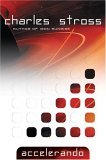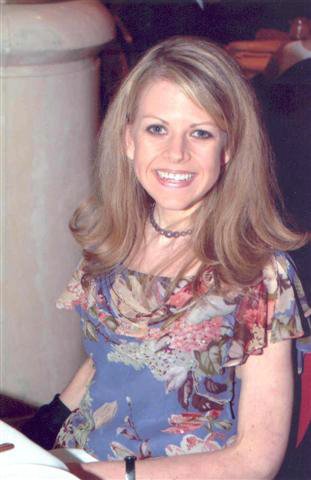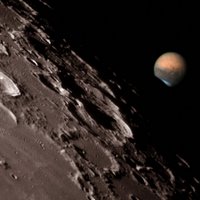In August, we’ll be attending the World Science Fiction Convention (
WorldCon), which is in
California this year.
I've never been before, and I'm looking forward to so many aspects of this—
- the more literary emphasis of the con will be a nice change of pace from the ComiCon (though I promise we’ll go back to the ComiCon… and they do have a fair amount of media-related programming at WorldCon as well; for instance: a "Once More w Feeling" (Buffy musical) singalong!). It looks like there will be an excellent lineup. Plus, one of my favorites,Connie Willis, is Guest of Honor
- getting to see Michael in action: he’s going to be on a panel, representing his game Star Trek Online, in the future of ST/40th anniversary track
- the lovely billion-degree weather that Anaheim promises in August (er, well, not so much on that one)
But, goofy though it may be, one of the things I’m looking forward to most is voting for the Hugo Awards. When I was first starting out reading the genre and didn’t know where to begin, I used these(and the Nebulas-- and at the time I didn't really understand the difference) to structure my initial reading, and I continue to be interested in (often applauding, occasionally baffled by) who wins each year.
The 5 nominees for best novel (a very boy-centric list this year…) are all entertaining reads, though not all ones likely to go onto my list of all-time faves. Some abbreviated thoughts on them are below.
I’m still working through the nominees for shorter categories (novella, short story, etc.) I’ll admit that I read far less short fiction than I do novels, but the impending the awards (combined with the fact that all of the shorter fiction nominees are available online) has inspired me to dig into them more. So, I’ll hopefully post more about those soon.
A Feast For Crows George R.R. Martin
 The one fantasy novel on the list this year, this is the fourth installment in Martin’s A Song of Ice and Fire series. This is a remarkable series. While it’s accurate, I think, to describe it as sword & sorcery epic fantasy (though much heavier on the sword than the sorcery), it far surpasses many others in this category in the complexity of the characters, the eschewal of black/white character divisions in favor of a murky, sometimes dismal, gray. This volume was somewhat disappointing (especially after such a long wait) in that it only covered half of the POV characters—the other half of the characters (and the other half of the book, really)—will appear in the next volume. As a stand-alone book, I don’t think it deserves the Hugo (though there’s still much to be admired in it). As a proxy for the series as a whole, I could be convinced—as it is a series very much deserving of the high acclaim it receives.
The one fantasy novel on the list this year, this is the fourth installment in Martin’s A Song of Ice and Fire series. This is a remarkable series. While it’s accurate, I think, to describe it as sword & sorcery epic fantasy (though much heavier on the sword than the sorcery), it far surpasses many others in this category in the complexity of the characters, the eschewal of black/white character divisions in favor of a murky, sometimes dismal, gray. This volume was somewhat disappointing (especially after such a long wait) in that it only covered half of the POV characters—the other half of the characters (and the other half of the book, really)—will appear in the next volume. As a stand-alone book, I don’t think it deserves the Hugo (though there’s still much to be admired in it). As a proxy for the series as a whole, I could be convinced—as it is a series very much deserving of the high acclaim it receives.
Learning the World: Ken McLeod
 A standalone book by McLeod, Learning the World on the surface could seem like a bit of a throwback to earlier days in the genre—a generation ship/alien first contact tale (albeit one mixed in with some blogging)—and a good one at that. McLeod plays around with (or winks at) the conventions of such a tale in entertaining ways. Less overtly politically engaged than some of his earlier books, it’s not my favorite of his (I’m partial to his initial Fall Revolution series), but a nice read nevertheless and as in all of his books is filled with loads of nifty ideas. It’s not my top Hugo pick, but I just noticed that he still hasn’t received a Hugo—something that seems wrong to me!
A standalone book by McLeod, Learning the World on the surface could seem like a bit of a throwback to earlier days in the genre—a generation ship/alien first contact tale (albeit one mixed in with some blogging)—and a good one at that. McLeod plays around with (or winks at) the conventions of such a tale in entertaining ways. Less overtly politically engaged than some of his earlier books, it’s not my favorite of his (I’m partial to his initial Fall Revolution series), but a nice read nevertheless and as in all of his books is filled with loads of nifty ideas. It’s not my top Hugo pick, but I just noticed that he still hasn’t received a Hugo—something that seems wrong to me!
Old Man's War: John Scalzi
 Scalzi’s debut novel is an entertaining read, to be sure. The book, widely acknowledged as a homage of sorts to Heinlein (and particularly Starship Troopers) tells the story of a new recruit to a fighting force of soldiers, comprising old-aged humans who trade 10 years of service (in deadly fights against aliens) for bodily enhancement/life extension. I’m not particularly a fan of military sf, but while there’s lots of action, the book isn’t terribly violent and though occasionally the dialogue sounded tinny to me, I generally enjoyed the voice of the narrator. It was a fast, fun read. I’m a bit puzzled, though, by Old Man’s War’s hugo nomination. While impressive as a debut novel, to be sure (and the Campbell best new writer award would seem quite appropriate), it just doesn’t quite seem in the league of the other books nominated. Still, though, it makes for good beach reading (and that’s not a category I use pejoratively). I’m also a bit unsure what to make of the politics of the book—or rather, what I think the politics of the book (vis-à-vis war) particularly are—while I suspect its unfair to simply label it as pro-war-rah-rah, it leaned a bit too heavily in that direction to leave me entirely comfortable. If you’ve read the book, I’d be keen to hear your insights on this.
Scalzi’s debut novel is an entertaining read, to be sure. The book, widely acknowledged as a homage of sorts to Heinlein (and particularly Starship Troopers) tells the story of a new recruit to a fighting force of soldiers, comprising old-aged humans who trade 10 years of service (in deadly fights against aliens) for bodily enhancement/life extension. I’m not particularly a fan of military sf, but while there’s lots of action, the book isn’t terribly violent and though occasionally the dialogue sounded tinny to me, I generally enjoyed the voice of the narrator. It was a fast, fun read. I’m a bit puzzled, though, by Old Man’s War’s hugo nomination. While impressive as a debut novel, to be sure (and the Campbell best new writer award would seem quite appropriate), it just doesn’t quite seem in the league of the other books nominated. Still, though, it makes for good beach reading (and that’s not a category I use pejoratively). I’m also a bit unsure what to make of the politics of the book—or rather, what I think the politics of the book (vis-à-vis war) particularly are—while I suspect its unfair to simply label it as pro-war-rah-rah, it leaned a bit too heavily in that direction to leave me entirely comfortable. If you’ve read the book, I’d be keen to hear your insights on this.
Accelerando: Charles Stross
 Perhaps the most important of the books on the list this year, the one that’s having the most impact on the field, Accelerando, however, is not really my favorite of the bunch.
Perhaps the most important of the books on the list this year, the one that’s having the most impact on the field, Accelerando, however, is not really my favorite of the bunch.
Though most of the novel previously appeared as short stories, I read it for the first time in this full-book form; at times I felt that the parts didn’t completely gel together—though I can also see the argument that this makes sense given the huge transformations/disruptions going on within the near-future universe of the book.
To say that Stross exploded onto the scene in recent years is to risk understatement—his half-dozen novels in fewer than that many years would be hard (and a shame) to miss (and that on top of his prolific short story writing as well). Stross is perhaps the leading chronicler of the singularity and the buzz about him is more than mere hype. His books abound with ideas, fabulous riffs on technologies and politics and economics, and all share a wonderful sense of humor (no shortage of laugh-out-loud moments in this books—the geek-in-jokes, though occasionally distracting are usually quite good). On these fronts, Accelerando is probably his strongest book yet. This tale of 3 generations of humans negotiating (post)humanity on the cusp of a cultural and technological singularity, compresses and collates a phenomenal number of wild concepts and ideas.
Yet, as with Singularity Sky (though to a lesser extent; I do much prefer Accelerando), there is still something about this writing that leaves me a bit cold. The plots are interesting generally, the ideas provocative, yet the characters are perhaps too thinly drawn to fully pull me into the books. My favorite Stross book is actually The Family Trade, the first of his “Merchant Princes” series (I’ve not yet read the follow-up books, but hope to soon). Though I’ll concede that the book (which has misleadingly been labeled as “fantasy” and which was published within weeks of Accelerando) may be fluffier, less significant, there was something about it that drew me in in a way quite missing from my other encounters with Stross. All of that said, though, I would not be at all disappointed to see Accelerando win the Hugo—while not completely enamored with it, I do understand why it has generated the great acclaim that it has.
Spin: Robert Charles Wilson
 Spin definitely gets my vote for best novel. Though I don’t predict that it will win—indeed it will be a (pleasant) surprise to me if it does—I do very much hope that Wilson takes the Hugo. Robert Charles Wilson (not to be confused with the Illuminatus Trilogy’s Robert Anton Wilson) is one of the most underrated writers in the genre today; I can’t fathom why he’s not much more widely recognized than he is.
Spin definitely gets my vote for best novel. Though I don’t predict that it will win—indeed it will be a (pleasant) surprise to me if it does—I do very much hope that Wilson takes the Hugo. Robert Charles Wilson (not to be confused with the Illuminatus Trilogy’s Robert Anton Wilson) is one of the most underrated writers in the genre today; I can’t fathom why he’s not much more widely recognized than he is.
Spin’s not my very favorite of his books—that honor remains with The Chronoliths (though I suspect that my particular fondness for The Chronoliths is deeply tied to the fact that it was the first of Wilson’s books that I’d read—so it was able to elicit from me an “Oh! Look what I’ve been missing!” response that a later novel can’t.) Spin does, though, share the basic characteristics and strengths of his other books—mysterious happenings, intriguing science, interesting extrapolations, a few spine-tingling moments as disparate parts of the story start to come together, beautiful prose, and rich, wonderful characters. It’s hard to do justice to his books with plot description: what happens to a few characters (and the world) after one night when the stars suddenly “turn off”? So, I particularly want to emphasize the latter elements, excellent writing/prose and richness of characters—which I really think is the lifeblood of his books—to correct anyone who may share the misapprehensions I had about Wilson before reading them. I’m not sure where I got this impression of Wilson’s books, but I distinctly remember thinking I should probably get around to reading him someday, he gets a lot of good reviews from people I respect, yet there was something that made me keep putting it off. I was under the impression that it was a sort of writing—big science, little characterization, decent plots, clunky prose (like, say, Greg Egan)—that I can get something out of, but never truly love. But that conception of Wilson was completely off-base, it’s really the opposite of how I’d characterize Wilson now, after having actually read him, and I’m still not entirely sure as to the true origins of my misperception.
Bonus: though it’s a stand alone book (not leaving one totally hanging at the end) I was happy to read (just today, actually, though it’s probably been known for a while) that there is a sequel in the works: Axis. Yay!












